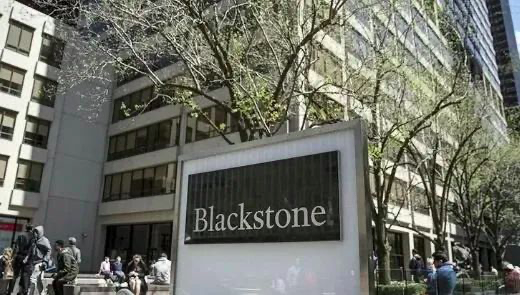Alongside the release of second-quarter results Thursday, Blackstone’s senior management outlined how the company plans to pull off what would be a nifty feat: Profit from the growing turmoil besetting financial and real estate markets while making sure its existing portfolio doesn’t get clobbered by the same forces.
With regards to the first part of this equation, Blackstone’s 10th global real estate opportunity fund already has firm commitments from investors to raise $24B, with another $6B in the final stages of approval.
Blackstone President and Chief Operating Officer Jon Gray said that meant the firm had raised a $30B real estate fund since its launch in March, the largest 90-day raise in history during one of the worst periods of financial turbulence in the past 15 years.
“That’s pretty staggering,” Gray said.
The enormous fund had at least one analyst asking how big is too big? The fund is 50% larger than its predecessor raised in 2019. Combined with money already amassed in opportunity funds and its lower-risk open-ended core-plus funds, it has $50B to invest in real estate, Blackstone said.

Gray said that while the size of Blackstone’s funds has risen rapidly, the price of real estate assets has risen even faster.
The company saw good opportunities to take public companies private, with the share price of these companies having fallen, Gray said, citing deals agreed recently to buy American Campus Communities for $12.8B and PS Business Parks for $7.6B.
Big deals require big funds, he said, and such transactions could involve both its opportunity funds and open-ended funds. Price falls in the private real estate market could also offer opportunities.
Overall, Blackstone raised $49B of new equity for real estate investment in the second quarter, the firm said. Of that, $26.5B was for its opportunity funds, $19.2B for its core-plus funds and $3.2B for its real estate debt funds.
That took its overall real estate portfolio to $320B, the largest in the world alongside that of Brookfield, depending on which of them has raised fresh capital or sold assets at any given time.
Gray also addressed the second part of the equation, how to insulate that gigantic existing portfolio from turmoil to come.
Sales are likely to slow down in the second half of the year, he said, as investors try to work out what persistent inflation means for interest rates and the economy, and how it will impact prices.
In the second quarter, Blackstone sold The Cosmopolitan Hotel in Las Vegas for $5.7B, generating $4.1B of profit, which it said was the most-profitable single-asset sale in history. It also recapitalised European last-mile logistics business Mileway, which now sits in its own $24B fund.
Blackstone’s existing portfolio has not been immune to recent market upheaval. The value of its opportunity funds fell 1% in the quarter, a rare trip into the red. But that compares to a 17% fall in an index of public REIT share prices. The value of its core-plus holdings rose 2.3%. Its opportunity fund holdings have risen 35% in the past 12 months.
As to why Blackstone’s management felt the existing portfolio would not be badly affected by a market downturn, Gray pointed repeatedly to the high proportion of properties in the logistics and multifamily sectors. In one large core-plus fund, these sectors made up 80% of its holdings.
Logistics rents are up 40% year-over-year in North America, he said, while U.S. multifamily rents are up 19%. Even if rental growth in logistics slows, he said, it would not disappear, counterbalancing the effect of rising cap rates.
As for residential, Gray harkened back to the late 1970s when inflation was also at 9%. Rents rose 9% in that period, he said, while new construction dropped by 50%, protecting the value of existing assets.
“Despite a lot of the headwinds, these are probably two of the best sectors in the entire economy around the world,” he said.
The Article is from bisnow.com, copyright belongs to owner





